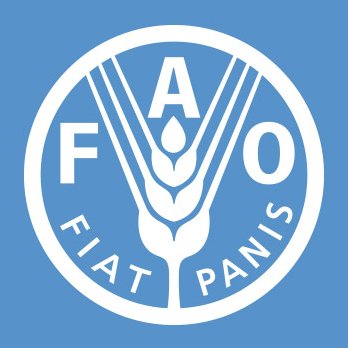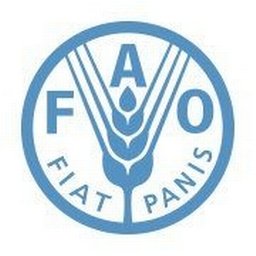Job Posting
: 08/Aug/2025Closure Date
: 29/Aug/2025, 9:59:00 PMOrganizational Unit: ESAJob Type
: Non-staff opportunitiesType of Requisition: ConsultantGrade Level: N/APrimary Location
: Italy-RomeDuration: Up to 11 monthsPost Number: N/AIMPORTANT NOTICE: Please note that Closure Date and Time displayed above are based on date and time settings of your personal device
- FAO is committed to achieving workforce diversity in terms of gender, nationality, background and culture.
- Qualified female applicants, qualified nationals of non-and under-represented Members and person with disabilities are encouraged to apply;
- Everyone who works for FAO is required to adhere to the highest standards of integrity and professional conduct, and to uphold FAO's values
- FAO, as a Specialized Agency of the United Nations, has a zero-tolerance policy for conduct that is incompatible with its status, objectives and mandate, including sexual exploitation and abuse, sexual harassment, abuse of authority and discrimination
- All selected candidates will undergo rigorous reference and background checks
- All applications will be treated with the strictest confidentiality
FAO’s commitment to environmental sustainability is integral to our strategic objectives and operations.
Organizational Setting
The Agrifood Economics and Policy Division (ESA) conducts economic research and policy analysis to support the transformation into more efficient, inclusive, resilient and sustainable agrifood systems for better production, nutrition, environment and life, leaving no-one behind. ESA provides evidence-based support to national, regional and global policy processes and initiatives related to monitoring and analysing food and agricultural policies, agribusiness and value chain development, rural transformation and poverty, food security and nutrition information and analysis, resilience, bioeconomy, and climate-smart agriculture. The division also leads the production of two FAO flagship publications: The State of Food and Agriculture (SOFA) and The State of Food Security and Nutrition in the World (SOFI).
The Office of Emergencies and Resilience (OER) is responsible for ensuring FAO's efforts to support countries and partners in preparing for and effectively responding to food and agricultural threats and crises. It is responsible for coordinating the development and maintenance of corporate tools and standards to enable Decentralized Offices to assist Members to prepare for, and respond to emergencies. OER ensures humanitarian policy coordination and knowledge, liaison with the Inter-Agency Standing Committee as well as with humanitarian resource partners, co-leadership with the World Food Programme of the global Food Security Cluster, organizational preparedness, surge capacity and response to large-scale emergencies. OER supports food and nutrition security assessments and early warning activities related to emergency and humanitarian analysis and responses. OER plays a major role in the development and leadership of the Organization's programme to increase the resilience of livelihoods to food and agriculture threats and crises.
The Integrated Food Security Phase Classification (IPC) is a global, multi-partner initiative to facilitate decision-making with improved food security and nutrition analysis. The IPC is a set of tools and protocols for classifying the severity and nature of food insecurity and malnutrition that integrates food security, nutrition, and livelihood information into a clear statement to inform decisions and response in food and nutrition crises contexts. IPC incorporates a meta-analytical approach drawing on evidence-based analysis that includes a broad range of data sets and stakeholders. This global initiative is governed and strategically guided by twenty-one major agencies: Action Against Hunger, CARE International, Comité Permanent Inter-États de Lutte Contre la Sécheresse au Sahel (CILSS), Catholic Relief Services (CRS), the Food and Agriculture Organization of the United Nations (FAO), the Famine Early Warning Systems Network (FEWS NET), the Global Food Security Cluster, the Global Nutrition Cluster, the International Food Policy Research Institute (IFPRI), the Intergovernmental Authority on Development (IGAD), IMPACT, the Joint Research Centre (JRC) of the European Commission, Oxford Committee for Famine Relief (Oxfam), the Southern African Development Community (SADC), Save the Children, the Sistema de la Integración Centroamericana (SICA), the United Nations Development Programme (UNDP), the United Nations Children's Fund (UNICEF), the World Bank, the World Food Programme (WFP) and the World Health Organization (WHO).
The IPC Global Support Unit (GSU), hosted within FAO and co-managed by FAO’s Agri-food Economics and Policy Division (ESA) and the Office of Emergencies and Resilience (OER), is the operational arm of the IPC Steering Committee and is responsible for the coordination of IPC normative development, IPC global standards on quality and compliance, IPC communication, as well as the global coordination of capacity building support to IPC activities worldwide.
IPC Call for Expression of interest
As part of the implementation of the IPC Global Strategic Programme, the IPC engages experts to work on activities and projects as international consultants or under personal service agreements (PSA). The assignment involves full-time functions and has a duration of up to 11 months. The possibility of extension is subject to satisfactory performance and depending on the availability of resources and needs of the Organization.
This assignment is based in Rome and may require some (limited) travel. Individuals meeting or exceeding the requirements of the Call will be included in the ESA Divisional Roster. Experts who are registered in the Roster are available for consideration whenever relevant opportunities arise matching the required profile.
Reporting Lines
Selected applicants will work under the direct supervision of the IPC Deputy Global Programme Manager, and the overall guidance of the IPC Global Programme Manager and ESA Deputy Director.
Technical Focus
Integrated Food Security Phase Classification (IPC) analyses, strategic communications, publications and editorial work, digital and multimedia communication, communication’s capacity development, media relations and outreach, partnerships, coordination.
Tasks and responsibilities
The IPC is looking to identify experts with knowledge in at least part of the areas of work identified below. Specific assignments would include detailed activities and deliverables under the broad areas of expertise which include the following:
• Provide strategic support for the implementation of the IPC Communication Strategy and Plan, ensuring alignment with the IPC Global Strategic Programme.
• Coordinate planning, implementation and monitoring of the communication team’s activities and tasks to ensure effectiveness, coherence and alignment with strategic goals and priorities.
• Roll out IPC communication tools and guidelines to promote consistency, clarity, and adherence to global communication standards.
• Deliver remote and in-country support to integrate communication processes throughout IPC analyses. Tasks include preparing templates, disseminating communication guidelines, and collaborating with IPC Technical Working Groups to develop high-quality IPC communication products.
• Coordinate the conceptualization and production of various types of communication products (e.g., digital, print, broadcast), including press kits, brochures, backgrounders, audio-visual materials. This involves proposing topics, determining the appropriate medium and target audience, preparing production plans, guiding or developing design, writing drafts, copy editing, and coordinating printing and dissemination processes.
• Support the IPC Communications Network, including through the coordination of high-profile reports releases, preparation of talking points for media engagement etc.
• Coordinate the IPC’s media engagement initiatives aimed at ensuring that media requests are responded to in a timely manner and global and country level press events, involving the release of IPC findings are sufficiently equipped with key messages and talking points.
• Implement IPC training initiatives by planning, preparing and delivering informative and engaging training sessions for technical experts, communicators and journalists.
• Oversee the management and maintenance of IPC online presence (website, social media platforms, email, etc.) ensuring that IPC content meets the required quality criteria and is published in a coordinated and timely manner. Identify and undertake concrete steps to increase the visibility and followership of IPC communication channels and products.
• Perform other related duties as required.
All communication materials will follow IPC and FAO clearance processes and comply with standards and guidelines, including:
IPC guidelines:
• The IPC Style Guide
• The IPC Communication Guidelines
FAO Standards and guidelines:
• Liaison with FAO Office of Communication (OCC) will be maintained, either directly or through an agreed focal point/coordinator, to ensure compliance with OCC standards, aligned messaging, and appropriate review and clearance processes.
• All communication materials will follow FAO clearance processes and comply with FAO standards, including:
FAO Strategic Framework 2022-31: https://www.fao.org/strategic-framework/en
FAO social media policy and guidelines: https://www.fao.org/2/socialmedia
Social Media Branding Guidelines: https://openknowledge.fao.org/handle/20.500.14283/cb5044en
FAOSTYLE(https://openknowledge.fao.org/handle/20.500.14283/cb8081en
FAO terminology http://www.fao.org/faoterm
FAO Names Of Countries https://www.fao.org/nocs/en
Story guidelines, Story template, UN map standards, FAO logo policy and related branding guidelines (available to staff).
• Further guidance regarding FAO communications, policies and procedures can be found through the FAO intranet, OCC section.
CANDIDATES WILL BE ASSESSED AGAINST THE FOLLOWING
Minimum Requirements
• Advanced university degree in Communications, Journalism, International Studies or a closely related field.
• At least 3 years of relevant experience in communication and/or information field, including development and implementation of communication and visibility strategies and plans, development of messaging and communication products, and/or media engagement.
• Working knowledge (level C) of English, French or Spanish and limited knowledge (level B) of one of the other two.
FAO Core Competencies
• Results Focus
• Teamwork
• Communication
• Building Effective Relationships
• Knowledge Sharing and Continuous Improvement
Selection Criteria
• Work experience in more than one location or area of work, particularly in field positions, is desirable.
• Extent and relevance of experience in corporate communications and/or public relations.
• Extent and relevance of experience in conceiving, producing and disseminating information products in various formats.
• Good facilitation and communication skills (oral and written), and demonstrated ability to tailor messages to different audiences, ranging from national level analysts to senior management of agencies.
• Extent and relevance of experience in managing or coordinating teamwork.
• Extent and relevance of experience with relevant software packages would be considered an asset.
Please note that all candidates should adhere to FAO Values of Commitment to FAO, Respect for All and Integrity and Transparency
ADDITIONAL INFORMATION
- FAO does not charge any fee at any stage of the recruitment process (application, interview, processing)
- Please note that FAO will only consider academic credentials or degrees obtained from an educational institution recognized in the IAU/UNESCO list
- Please note that FAO only considers higher educational qualifications obtained from an institution accredited/recognized in the World Higher Education Database (WHED), a list updated by the International Association of Universities (IAU) / United Nations Educational, Scientific and Cultural Organization (UNESCO). The list can be accessed at http://www.whed.net/
- For more information, visit the FAO employment website
- Appointment will be subject to certification that the candidate is medically fit for appointment, accreditation, any residency or visa requirements, and security clearances.
HOW TO APPLY
• To apply, visit the recruitment website at Jobs at FAO and complete your online profile. We strongly recommend that your profile is accurate, complete and includes your employment records, academic qualifications, and language skills
• Candidates are requested to attach a letter of motivation to the online profile
• Once your profile is completed, please apply, and submit your application
• Candidates may be requested to provide performance assessments and authorization to conduct verification checks of past and present work, character, education, military and police records to ascertain any and all information which may be pertinent to the employment qualifications
• Incomplete applications will not be considered
• Personal information provided on your application may be shared within FAO and with other companies acting on FAO’s behalf to provide employment support services such as pre-screening of applications, assessment tests, background checks and other related services. You will be asked to provide your consent before submitting your application. You may withdraw consent at any time, by withdrawing your application, in such case FAO will no longer be able to consider your application
• Only applications received through the FAO recruitment portal will be considered
• Your application will be screened based on the information provided in your online profile
• We encourage applicants to submit the application well before the deadline date.
If you need help or have queries, please create a one-time registration with FAO’s client support team for further assistance: https://fao.service-now.com/csp
FAO IS A NON-SMOKING ENVIRONMENT







